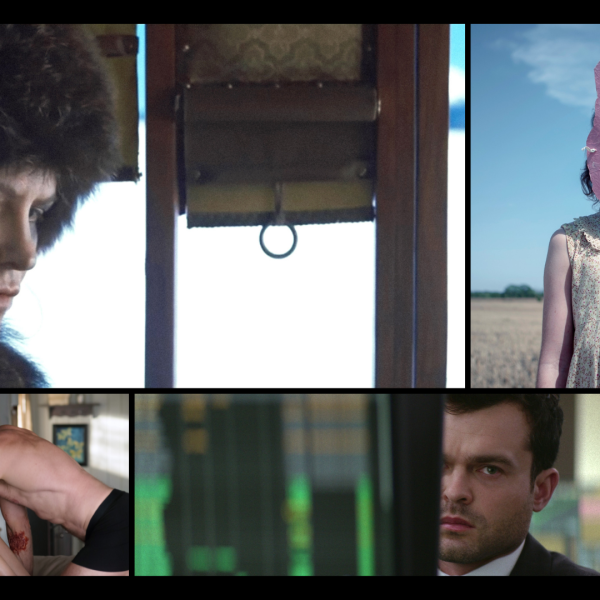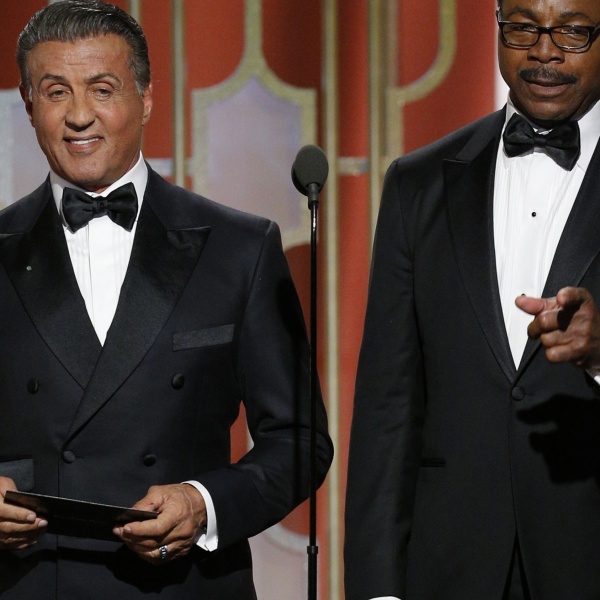Ever since his high school golf teammates realized he couldn’t hit a straight tee shot, Carter (David Krumholtz) has been saddled with a nickname that doesn’t allow much room for charitable interpretations. His days of athletic mediocrity are now far behind him, but the “Lousy Carter” moniker has followed him throughout his adult life — and frankly, it’s hard to argue he doesn’t deserve it. The question of whether his high school bullies were abnormally clairvoyant or he simply lived down to their insults is a chicken-and-egg dilemma, but the middle-aged iteration of Carter that we meet in Bob Byington’s latest film is an undeniably lousy man.
The literature professor has spent the bulk of his adult life coasting on the glimmer of promise that he showed as an animator when he released his first film 13 years ago. He parlayed those 15 seconds of fame into a cushy teaching gig that has sustained him through his creative dry spell, but he never got around to making a second film. He’s spent years kicking around an idea for a rotoscoped take on the work of Vladimir Nabokov, but excessive drinking and doing the bare minimum at his day job have taken up the bulk of his free time.
Carter’s lack of ambition, isolated personal life, and destructive habits should be glaring signs that he’s setting himself up for some real despair in the near future. But the lousy golfer isn’t too worried about the back nine of life, because he only has six months to live. The terminal diagnosis doesn’t bother him as much as it should, since he’s not leaving much behind besides medical debt and boring paperwork. Years of alcoholism and professional failures probably numbed his emotions long before the movie starts, so the news of his impending doom fails to elicit much more than a resounding shrug.
But even the most repressed individuals have to change something about their routine when they realize their days are numbered. Carter has neither the bucket list nor the means to pursue a grandiose final adventure, and he was never the kind of guy who’d opt to spend his twilight days making the world a better place. Instead, the film plays out like a bizarro take on “Ikiru.” Akira Kurosawa’s life affirming classic follows a dying bureaucrat who devotes his last weeks on earth to building a children’s playground, ultimately finding true peace by living for something greater than himself. Byington takes Carter in the other direction, as the ailing academic decides to cram as many sins as possible into his last semester on the metaphorical campus.
Carter realizes that he’s never had an affair with a pupil, a problem he tries to rectify by inviting Gail (Luxy Banner) into his “Great Gatsby” seminar that’s supposed to be capped at eight students. Rather than the genuine horniness that has brought down so many men in similar positions of power, Carter’s attempt at an exploitative relationship stems from his idea that preying on students is something that a dying professor should want to do. He pays Gail to star in his animated “Lolita” film, which he has now decided to finish before he dies as a way of filling the hours that he can’t spend drinking. When her apathy toward him stalls his plans, he pivots to sleeping with his best friend’s wife.
As a character study, “Lousy Carter” is a depressingly realistic portrait of a certain breed of toxic has-beens who waste away in tenured jobs at liberal arts campuses across America. And to Krumholtz’s credit, he gives a believable performance as the kind of loser who deserves a harsher epithet than “lousy” in front of his name. Media literacy might condition viewers to suspect there’s a massive secret lurking beneath his facade, some hidden brilliance or life-defining trauma that’s just waiting to be discovered. When that reveal never arrives, we’re left to infer that the real truth behind the film is that some men are just irredeemably lousy.
Creating a character who elicits zero sympathy despite receiving a terminal diagnosis and cremating his late mother within a 76-minute runtime is no small feat, but “Lousy Carter” pulls it off. Unfortunately, Byington traps the character in an odious purgatory that deprives him of either uplifting redemption or cathartic comeuppance. The film would have benefitted from either committing to Carter’s growth or taking the comedy in a much darker direction, but the middle path it trods is ultimately unsatisfying. “Lousy Carter” might be a reminder that middle age is filled with monotony and unsolvable problems, but that doesn’t mean our movies have to be.
Grade: C
A Magnolia Pictures release, “Lousy Carter” opens in select theaters and on VOD platforms on Friday, March 29.








